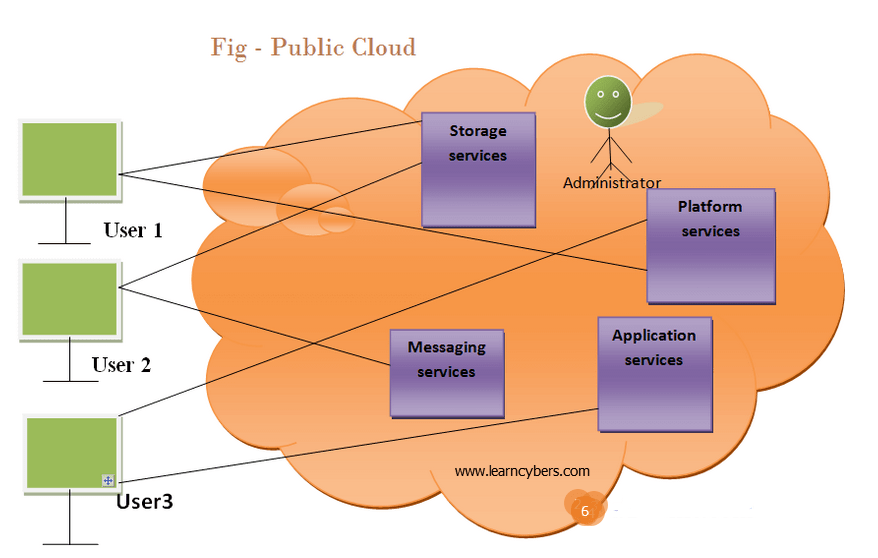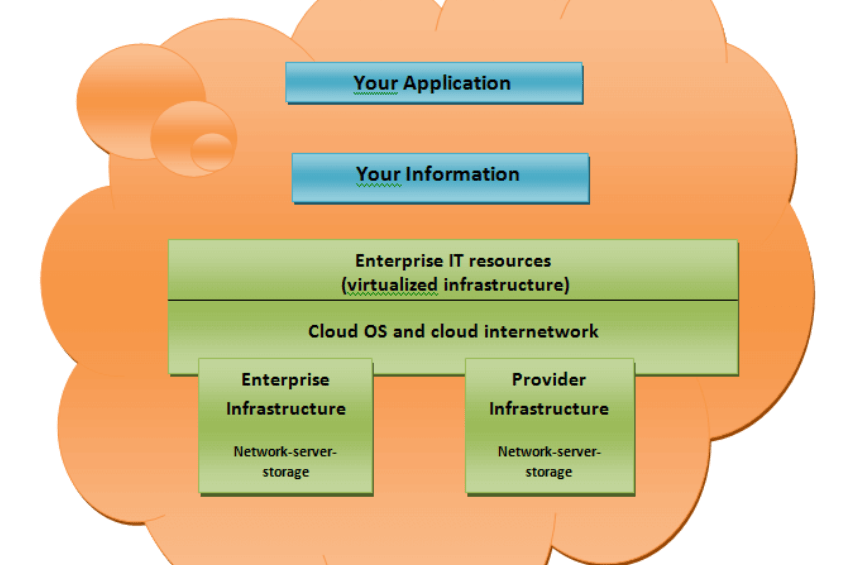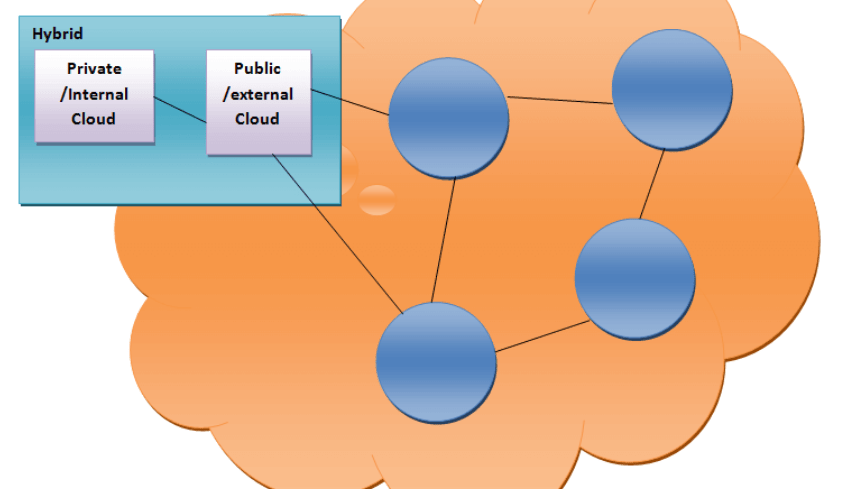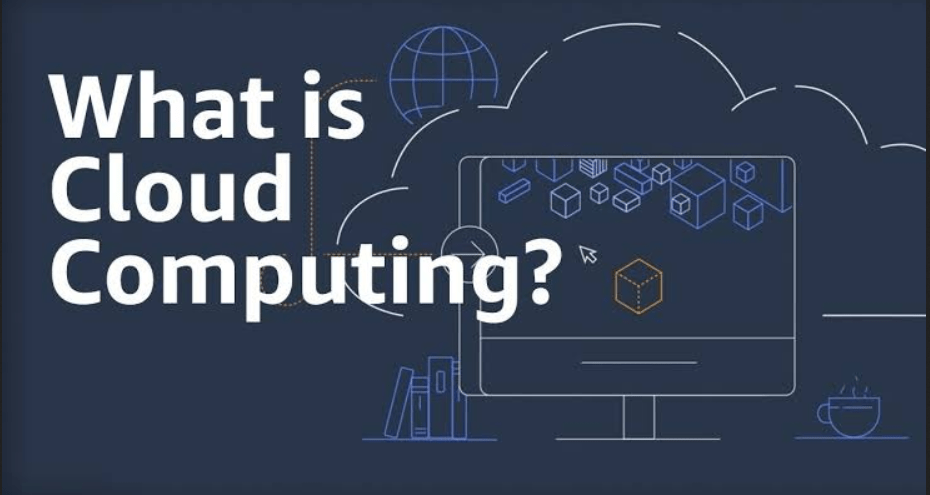Cloud Computing is everywhere nowadays. Either you are at home or travelling, cloud computing is your need. Internet is the biggest source of information where anyone can get information about anything. The answers to your all queries are just one click away. Cloud Computing is the latest form which helps you in utilizing internet in the best way. No matter where you are in the world, you have everything in one place.
Our article about what is cloud computing with example develops your understanding of cloud computing which is related to deliver services all over the world.
Table of Contents
What is Cloud Computing?
Cloud Computing is on-demand provision of resources like computing power, data storage, network speed etc. Cloud Computing is concept of centralizing resources like a data center has many computing devices. Anyone can rent these devices and perform the required job.
We can not restrict cloud computing to only physical resources. Cloud Computing gave rise to software as a service (SaaS) along with hardware as a service. There is a huge list of scenarios where cloud computing is applied. Cloud Computing is one of the best areas in Computer Science with a wide scope for online business. Entrepreneurs will never ignore opportunities given by cloud computing.
Cloud Computing Examples:
Cloud Computing has many applications, hence, there are many examples. I have discussed a few of them below.
Cloud Hosting
Cloud Hosting has replaced the concept of conventional web hosting. In conventional web hosting services, customers were unable to expand computing, memory or storage resources. Whenever more resources were required, customers had to migrate to another server. But cloud computing has made it easier to expand resources. It is more scalable and expandable. A customer can expand specific resource which is required, he does not require to upgrade all other resources. He can simply scale server specifications without performing data migrations.
Cloud Data Storage
Conventionally, data were stored in hard disks on a computer, compact discs, memory cards, USB and other such storage devices. Data could be accessed only if a user had physical access to any of them. These conventional ways are replaced with cloud data storage. You can access data stored in the cloud from anywhere in the world without physical access to any particular device. Data is accessible from all of your devices, no matter it is mobile or computer.
Cloud Data Storage prevents data loss due to formatting disk or any other accident. Cloud Computing service providers keep backup of all data, hence, there is negligible risk of data loss. In market, you may find Google Drive, One Drive and Dropbox. These are live examples of cloud data storage.
Remote Desktop Protocol
Sometimes you require a computer system with high specifications for the only short term. Let’s take an example if you are a student and your teacher has given you the assignment to perform a task. Suppose that assignment requires Octa-Core Processor with 64 GB RAM, 10 TB storage, 16 GB graphics card etc. Would you buy a computer system to do a single assignment? Such a system would be very expensive and almost unaffordable for students. Here comes the use of remote desktop protocol which allows you to use a computer system.
Remote Desktop Protocol allows you to access a computer system, perform your tasks, install software or do anything just as you do on your computer. Such a computer system is also known as RDP. RDP is placed somewhere in the world which you rent from cloud computing service providers. Service providers like Alibaba Cloud, Microsoft Azure and Google Gcloud provides user interface to select system hardware specifications as per your requirement and install your desired Operating System.
There are many other examples, you may explore them at your own pace.
What are advantages of Cloud Computing?
Cloud Computing has a wide range of benefits for all users from individuals to the enterprise. Some advantages of cloud computing are given below:
- Faster processing of applications due to high computing power with the extendable number of processors.
- Cloud Computing provides almost unlimited storage. For example, you can rent up to 32000 terabytes storage disks from providers like Alibaba Cloud.
- You will not need any physical server to host your website.
- You may avoid the maintenance cost of physical servers.
- Cloud Computing is very beneficial to clients who are staying in countries with load-shedding of electricity or expensive electricity.
- Cloud services providers keep backup to avoid data loss.
- You won’t need a network engineer or network administrator.
- You won’t need to buy licenses of software packages for each computer in organization.
What are possible issues or disadvantages in Cloud Computing?
Cloud Computing has more advantages and very fewer disadvantages, but ignoring them may result in critical situations.
- Storing sensitive and private information in cloud will raise security concerns. Your data can be attacked. You may want to read more about Cyber Security in Cloud Computing – Attackers and Threats.
- High-speed internet is a major requirement if you are going to use cloud as a disk, RDP, etc.
Types of Cloud Computing
There are three major kinds of Cloud Computing:
- Public Cloud
- Private Cloud
- Hybrid Cloud
Public Cloud
Public cloud is one who offers services to all kinds of customers and is accessible by the general public. Some public cloud service providers include Alibaba Cloud, Amazon AWS, Google GCloud etc. They offer a big list of services including web hosting, cloud computers, database servers, big data, live video streaming servers etc.

Advantages of Public Cloud
Advantages of public cloud are given below:
- Same resources are shared among consumers resulting in low cost.
- Resources are provided from different locations. If one fails, it is replaced with another resulting in enhanced reliability.
- Resources are available in cloud which can be used to scale cloud specifications anytime.
- It is flexible and easy to integrate with private clouds.
- Public cloud shares data and services throughout the internet.
Disadvantages of Public Cloud
Disadvantages of public cloud are given below:
- It requires high-level security because data is shared publically throughout the internet.
- As compared to a private cloud, it is less customizable because other users on the same cloud are also kept in mind while customization.
Private Cloud
Private Cloud is operated within the organizations. It allows accessing services and systems within the organizations. However, it can be managed by organization itself or 3rd part.

Advantages of Private Cloud
Private cloud has following advantages:
- Private cloud shares resources from distinct pool which makes it more secure.
- Private cloud has more control over hardware and other resources because it is accessible within an organization only.
Disadvantages of Private Cloud
Private cloud has following disadvantages:
- It is less scalable because resources within an organization are limited.
- It is less cost-effective due to hardware costs.
- It can be accessed only within organization, not globally. For example, clouds in banks.
Hybrid Cloud
Hybrid cloud is a combination of private and public cloud. Critical activities are done within private cloud while all other activities are carried out within public cloud.

Advantages of Hybrid Cloud
Hybrid cloud has qualities of public and private cloud. Hybrid cloud has following advantages:
- It is scalable.
- It is secure and flexible.
- It is cost-effective.
Disadvantages of Hybrid Cloud
Hybrid cloud has issues of public and private cloud. Hybrid cloud has following disadvantages:
- It has complex networking configurations.
- Policies of the organization must be followed.
What is virtualization in Cloud Computing?
In computing, virtualization is a virtual version of anything which involves sharing of resources among multiple users. In virtualization, a physical device is virtualized and distributed among multiple users. GPU Dedicated Server and Azure Windows 10 VM are widely used virtual servers for hosting.
For example, an apache server is given to multiple users to host multiple websites by creating virtual hosts. cPanel and Plesk are web-hosting administration software which allows creating virtual hosts.
There are different kinds of virtualization.
- Hardware Virtualization
- Operating System Virtualization
- Server Virtualization
- Storage Virtualization
- Software Virtualization
- Linux Virtualization
- Windows Virtualization

